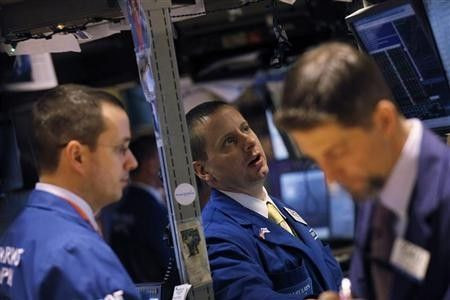US Stock Futures Signal Higher Open On Wednesday Ahead Of May Federal Budget

U.S. stock index futures point to a higher open Wednesday ahead of the Treasury Department’s federal budget for May.
Futures on the Dow Jones Industrial Average were up 0.28 percent, the futures on the Standard & Poor's 500 Index were up 0.47 percent and those on the Nasdaq 100 Index were up 0.46 percent.
The U.S. Department of the Treasury will issue the report on the federal budget, which measures the difference between the government's income and expenditure, at 2:00 p.m. EDT. Economists polled by Reuters predict that the report will show a deficit of 110.2 billion for May compared to a surplus of $112.9 billion in April.
European markets were marginally up on Wednesday after data showed that industrial production in euro area unexpectedly gained in April. London’s FTSE 100 was up 0.05 percent and Germany's DAX-30 gained 0.08 percent, while France's CAC-40 rose 0.34 percent.
Data released by Eurostat showed that factory activity in the world's biggest economic bloc rose by 0.4 percent in April, defying analysts’ estimate of a 0.2 percent decline.
Earlier, Asian stocks markets declined to hit new lows for 2013 as sentiment continued to be weighed down by the Bank of Japan's reluctance to check the volatile domestic bond market and lingering fears about the Federal Reserve's future policy stance.
"Markets have yet to find a new focus that replaces the trading betting on Abe, which appears to be closing out. The next focus is not Japan, maybe the Fed, but in the absence of clear fresh factors, each asset may be undergoing position adjustments under the current volatile conditions," Hiroshi Maeba, head of forex trading for UBS in Tokyo, told Reuters.
The Nikkei declined 0.21 percent as a volatile yen weighed on exporter companies’ shares. South Korea's KOSPI fell 0.56 percent and India's BSE Sensex was trading down 0.54 percent in late afternoon trade.
Meanwhile, data released by Japan's Cabinet Office Wednesday showed that the country's core machinery orders declined for the first time in three months, suggesting that companies remain hesitant to increase capital spending despite the government’s aggressive stimulus measures.
Core machinery orders, which measure the change in the total value of new orders placed with machine manufacturers, excluding ships and utilities, plunged 8.8 percent in April following two consecutive months of gains and came in below a Reuters forecast of a 8.5 percent decline.
© Copyright IBTimes 2025. All rights reserved.





















